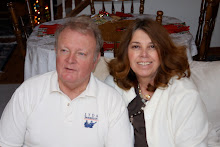Sunday, November 29, 2009
Robin Hood
Well it certainly sounds like Eagleton is recommending a Robinhood approach to smooth out our economic imbalances, if not a downright Marxist solution.Because we are all going to die anyway,he says we must live more in the 'here aad now" and less within the confines of permanence (Eagleton,Terry. After Theory. New York: Basc Books, 2003. 209.Print.). In death the author argues that we learn our lives are not able to be mastered nor meaning fully arrived at,as there are always contingencies (Eagleton 213-215). Cheat death, no, but living with the ambivalent and the multiple possibilities in life and death is suggested. It sounds good, but then my father who planned all the details of the disposal of his property, animals and financial assets, as well as his physical care, as his health failed, certainly made everything much easier for himself and his family, as decisions and directions had already been chosen. Six of one and half a dozen of the other?
Subscribe to:
Post Comments (Atom)




I don't know that Robin Hood is the way I would look at Eagleton's thoughts - one of my most cherished personal philosophies is that we do everything (absolutely EVERYTHING) we do in our adult lives relative to the way we deal with (or don't deal with) death.
ReplyDeleteIt is a part of the "[irony]" of being human (Eagleton 210)that we must live each moment with the thought of our impending death standing over our shoulder, and we chose to either run without conscious thought as though we're being chased by Michael Myers or we accept our mortality and learn "to live more abundantly" (210).
We could ALL be Robin Hood.
Eagleton has brought up a valid observation of Americans. We do bulldoze our way through the globe as the ultimate capitalists. Yet, I didn't see any mention of our generosity when there are natural disasters. I believe we are also one of the most giving nations. Which of course, becomes a double-edged sword. ultimately, the message that comes through very strongly for me is the way in which we are viewed. Doesn't matter how we view ourselves, the real danger for us lies in how the "other" sees us. For the suicide bomber "his weapon is despair itself" (220). So, yes, death drives many responses, whether it's our American cultural denial or someone else's cultural embrace.
ReplyDeleteOn Marilyn's note concerning how others view our country, I found it interesting to read Eagleton as he made such comments from a British point of view. I think we often believe our country is superior to others because we own so many major companies, economically we believe we are "better" than other countries. However, Americans are not informed about how other countries react to natural disasters or horrible incidents--we just assume we are the most giving nation. For instance, Iran set up fund to help the victims of 9/11 hours after the disaster...but that would never be put on Fox News.
ReplyDelete